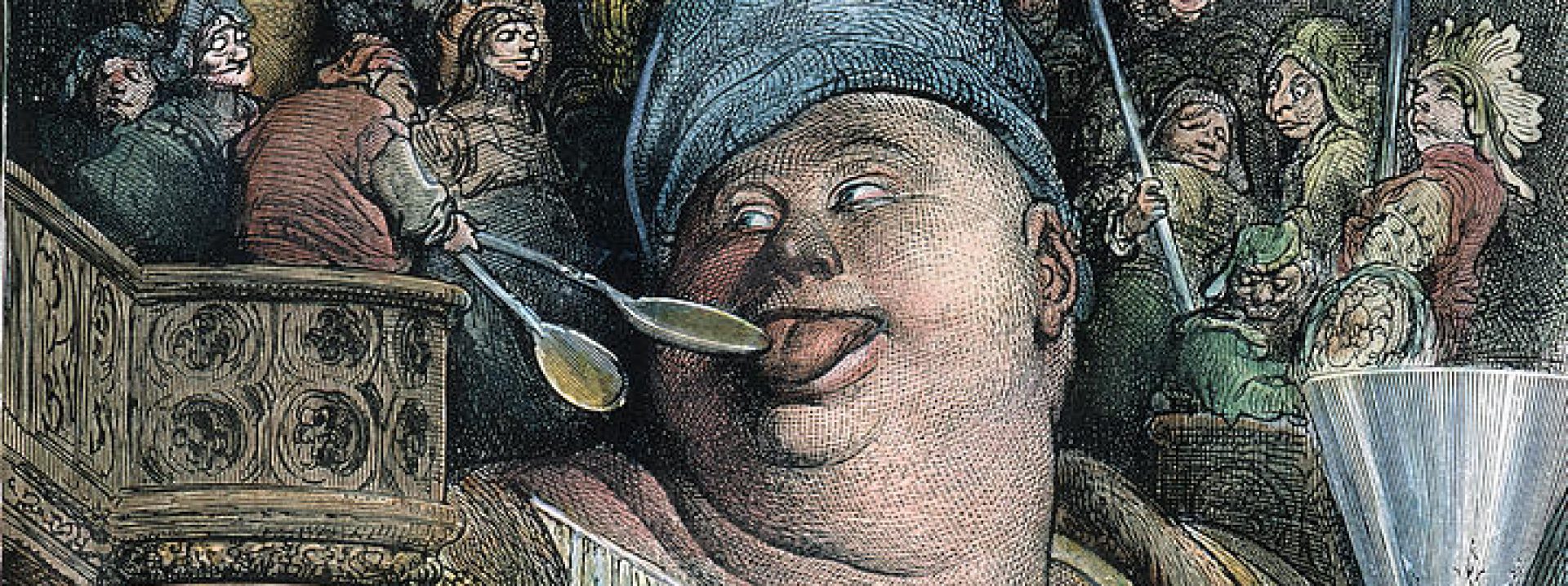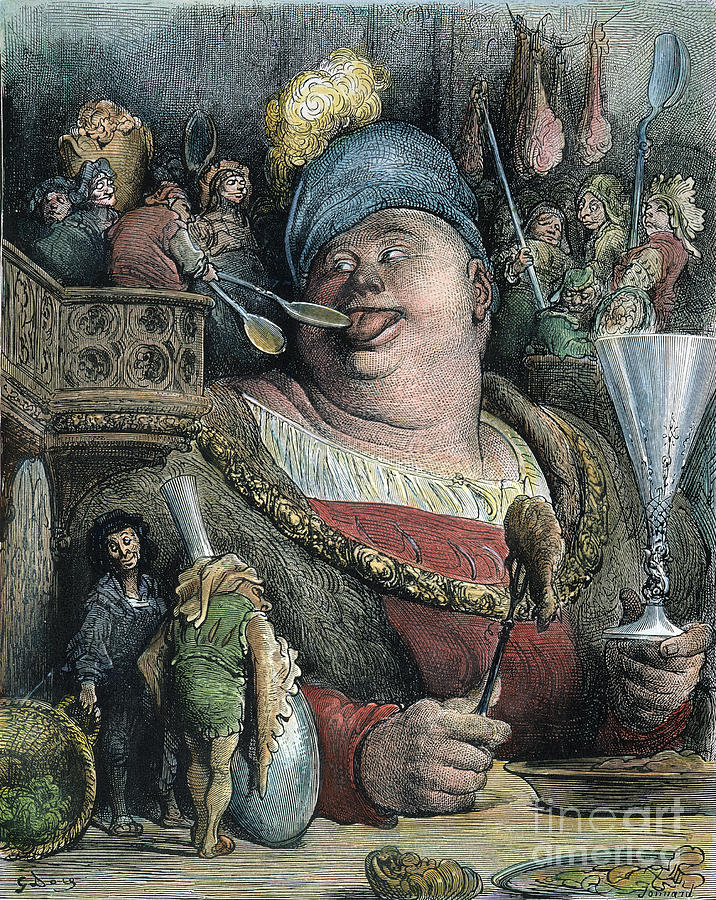Hi Everyone! I know things right now can seem a little dreary and boring, so I wanted to do an Appetizer that might bring some laughter or––dare I say––fun into your lives. Personally, I love comedy shows and my favorite way to binge them is through Netflix specials. I’m sure most of you have heard of John Mulaney, but if not this appetizer will introduce you to his work.
I’ve linked below a bit from his show “Kid Gorgeous at Radio City” that I think highlights and combines many of the themes we have been discussing in class (i.e. the lower stratum, carnival laughter). Comedy shows as a whole are an interesting genre of entertainment; if everyone’s sense of humor is inherently different, how can a comedian make their entire audience laugh? Part of the answer lies in their material and delivery. In this bit, John Mulaney discusses the aging process and the abundance of bodily fluids that come in time. In my experience watching standup shows like this one, I have noticed that sex, urination, defecation, sweating, and other bodily functions are central to the success of making the majority of an audience laugh.
I wanted to ask you all––as the audience––what your immediate thoughts are on this scene:
Did you think it was funny? Gross? Relatable?
What elements of the Grotesque (and/or Carnivalesque) can you identify?
Is there a connection between humor and the grotesque?
Any other thoughts you have on the subject (specific to the video or not)!
Watch 0:54-3:34 https://www.youtube.com/watch?v=lWOSc42Ga5g


The line that struck me in the clip was when he said “I was blowing up like a balloon!” in respect to consuming bread and seltzer. The image that I got was in Harry Potter when his uncle’s sister came to visit and he made her into a balloon that was floating around and then was deflated. It made me giggle, both as an image of this very skinny and small man “blowing up like a balloon” but also as a point of relating because, boy, am I a carb-o-holic and definitely know the feeling. I think that the expansion of the stomach as well as the over consumption of food that leads to it is grotesque because of the focus on the stomach and the physicality of it all; and I also think there is something inherently carnivalesque about eating food in the way that it is an action that represents unity and family in many cultures. As well as this, a lot of humor tends to utilize the grotesque for its subject because, well, humans are gross and it’s relatable! Bringing it to light in the form of standup comedy is an interesting form of carnival, and I think it’s one of the more modern examples of a carnival that can be translated from Bakhtin’s theories.
I think it is interesting to look at this video in the context of who John Mulaney is in terms of him being an extremely successful writer and performer, as well as a conventionally attractive young person. To see someone who looks like him and who is as successful as him bring himself “down to earth” by degrading himself through his humor is both carnivalesque and grotesque. Grotesque in that he is being degraded, and carnivalesque in that people are laughing with him. He is able to make fun of himself, to laugh at himself, which is very much in the spirit of the carnivalesque. I think it is largely because John Mulaney is a success that people find this segment so funny because it is funny to see someone bring themselves down to earth. A lot of modern comedy revolves around self-degradation, and John Mulaney is only one example of this culture. You see a lot of similar degradation in memes, as well as figures of speech that have been adopted by young people (like our obsession with how many brain cells we have). I think John Mulaney is a really great stand-up comedian, and I was smiling through the whole video, so thanks for choosing to post about him!
I thought that it was interesting how his bit about the things his body does was closely tied to age. He says that he is not old but is in a new category of “gross”: His pants are always kind of “damp”, he “talks through burps”. In our previous readings we’ve noticed the link between age and the grotesque especially with babies or the elderly, and that is present here too. I think that there is obviously a sense of the grotesque in his comedy and descriptions of his body, especially since he seems to embrace the changes in a joking way. Additionally, the connection between the audience and performer definitely adds to the carnivalesque, there’s a push-pull relationship between the two, and the audience is certainly laughing with him and not at him. His audience is most likely mature enough to understand some of the changes he is talking about, and rewards his descriptions with laughter.
I really like where you guys took the conversation, and wanted to pose a new question regarding the type of humor and self-degradation that you guys brought up. Another one of my favorite comedians is Ali Wong. She is an Asian-American comic whose shows often draw from her experiences as an Asian woman in modern America. Personally (as a half-Korean individual), I find her style pretty funny, but I’ve also thought about how it could be interpreted by the masses as offensive or damaging. So I guess my question for you all is how you think the audience’s experiences affect their perception and reaction to different humor. If the audience is offended, does that diminish the carnivalesque nature of the comedy show? I linked a scene from her show “Baby Cobra” that I think is a good example of humor that may be relatively niche and could provoke a negative reaction from viewers outside of that faction and I would love to hear what you guys have to say about it!
https://www.youtube.com/watch?v=V6O92PE551I
I think you bring up a really good point! It reminds me of the conversation we had about members of the the church and whether or not their parody feasts would be seen as offense within the community. Specifically with Ali Wong and other comedians, I think that it difficult to talk about audience because there’s always the audience that consumes the comedy regardless as well as the audience that it’s intended for. Like you said, she used niche humor that I think people would be offended by if they didn’t understand the culture she might be referencing. Whether or not that is carnival even when people are offended is an interesting question, and I think that it can still be. When something is designed for a specific community in mind, I think as long as it doesn’t provoke that reaction in that community it still retains its carnivalesque nature. Although carnival was designed for everyone in mind, there can be levels of community, and standup comedy operates on that type of Individual carnival.
I think this brings up a really interesting point about laughter and the carnivalesque. In this excerpt, people are laughing, but that does not necessarily mean that everyone is laughing and that no one is offended. We have spent a lot of time in this class looking at laughter as an indicator of the carnivalesque, but we have also talked about how that laughter has to be universal. But does that imply that if one person is not laughing the carnivalesque cannot exist? I think this is why Bakhtin sticks to literature when it comes to applying his theory because in real life there are simply too many factors for everyone to be laughing all at once. Someone will always get offended or upset in real life, so I think, in terms of things like stand-up comedy, we have to make room for those people within the carnivalesque.
I think this is a really good example. I absolutely love Ali Wong, but I can understand how controversial her humor can be (ex. the clip you posted). The comment section of that video is already a firsthand example of how people are divided by the humor. Is it acceptable to be someone of non-asian descent and laugh at that joke? Is it acceptable to be someone who is asian and does not find it funny? I think that these questions may be floating around in the heads of some of the listeners and to me it is a little unclear if it takes away from the carnivalesque spirit. In the video there is an overwhelming amount of laughter after Wong tells the joke, however if there is a small minority of people who do not laugh, does it take away from the carnivalesque atmosphere of the theater? On another note, so many comedians mask their racist/offensive/homophobic jokes with the guise that they are “pushing comedic boundaries” as a way to justify their sets. However, there are people in the audience, even just one person, who are deeply, deeply offended, can the atmosphere still be considered carnivalesque?
What I really liked about this appetizer is the way in which it explores the boundaries of a modern carnivalesque culture: comedy has always been one of–if not the main–form of carnival. As we look at comedy in the form of acts and standup rather than literature, the question remains of how much we can retain of the original intention of carnival. While it’s a difficult question to answer, especially in terms of Bakhtin, I really do believe standup comedy is a self-contained carnival. Perhaps the comedian is a King Carnival figure that embodies the feelings of the audience and is the one to enact the carnival! I think that you’ve brought up great examples of how carnival still lives in standup comedy and even can be the best modern form we have, and I’ll definitely continue to think about it as I watch comedians!
I like the phrase “self-contained carnival,” and I think stand-up comedy is a way for one person to embody the carnivalesque, or at least for one person to create a carnivalesque atmosphere for others. I think it also might be interesting to consider the work that goes into stand-up, in terms of writing and mastering joke delivery. Comedians like John Mulaney and Ali Wong often take fairly typical moments from their lives and transform them into something that creates a carnivalesque space. It is not the actual story the is carnivalesque, but how it is phrased and delivered that enables the carnivalesque.
Thank you guys so much for such an interesting conversation! I think I can safely say that I’ll look at standup comedy through a different lens having delved a bit into its carnivalesque nature––but also what can prevent it from achieving that status. This idea of a “self-contained carnival” is something I really like that you guys came up with and I feel is applicable to a lot more than just standup comedy shows.